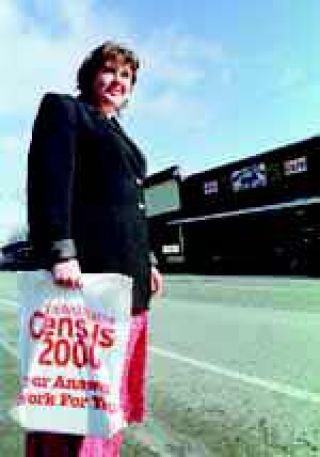SNOQUALMIE – Snoqualmie officials have decided to conduct a census that will end May 5 in an effort to obtain the correct number of residents living within city limits and avoid further funding cuts that resulted from an apparent miscount in the 2000 Census.
According to the Census Bureau’s latest count, the city of Snoqualmie has 1,631 residents. The city, however, estimates its population at 2,345 – a difference of 714 individuals, or a little less than one-third of Snoqualmie’s estimated population. The city believes most of those who were not included live on Snoqualmie Ridge and were either not counted at all, or they were lumped in with another geographic area.
In comparison, the city’s 1990 population was at 1,546, according to the bureau, which would mean Snoqualmie’s population rate rose only 5.5 percent over the 10-year period. The rate of increase is much less than other Valley cities. North Bend, which may have been overcounted, experienced an 84 percent increase and Duvall a 66 percent increase during the same period.
Because the low count can affect current and future city funding, officials are asking residents to participate in the census.
“It’s vital to the continuation of services in Snoqualmie, so it’s imperative that we have as much participation as possible to get an accurate count and an efficient count,” said Gary Armstrong, city administrator.
City staff and volunteers – which are still needed – will go door to door to collect information April 24 to May 1, mostly in the evenings.
For residents not at home, enumerators will leave information at the house. Those who receive the packet, or have not been contacted by May 1, are asked to call a special census number, (425) 831-7791, and answer the questions. That number will be available April 23.
The city had several options in conducting the census, including finding volunteers to serve as enumerators, hiring people to do the survey or having city workers drop what they’re doing and complete the task. Snoqualmie decided to go with a combination of city staff and volunteers, and the cost of the recount could range between $7,000 and $12,000.
“Even though this money was budgeted, neither was the loss of revenue,” Armstrong said.
Rhonda Montgomery, permit administrator for the city and the person charged with leading the census effort, said the cost of hiring an independent company to do the recount would be at least $30,000.
Instead of the lengthy questions asked in the 2000 Census long form, the city is only interested in a few pieces of information. Enumerators will ask for the dwelling’s physical address, how many units are in the structure, the names of persons living there and if those persons lived at that location on April 1, 2000.
Officials also ask that anyone who is going on vacation in the next few weeks to call the city and be counted. Mayor Fuzzy Fletcher will send a letter to residents this week that explains why the census is being conducted and urges community members to participate. And all of the data gathered will be strictly confidential, explained Montgomery.
“We are very serious about confidentiality,” she said. “We need these numbers.”
If the apparent undercount stands, it would mean the loss of state funding given to the city, which can affect services such as fire, police, parks and road repairs, as well as the overall city budget.
The effects would be long-term if the situation is not corrected, because the 2000 numbers are used as a base population count for the city, then are added to every year to adjust the numbers for growth. This could mean Snoqualmie’s population count would be off for at least the next decade.
Snoqualmie is already losing money because of the undercount, and officials see the citywide census as the solution to the problem. The city must report all the data it collects by May 5.
“There does not seem to be an adequate correction measure through the federal process, and the timing for them to do any kind of a correction costs us two to maybe three years of revenue,” Armstrong said. “However, the process of doing our own allows us to get that information to the Office of Financial Management and they will accept and post the information as of June of this year.”
Bob Rinaldi, a spokesman for the Census Bureau’s Count Question Resolution Program, said even though Snoqualmie will follow bureau guidelines in conducting its census, simply providing a new population total to the federal agency is not enough to correct the 2000 count. Instead, under the program, the city can provide geographic data, such as maps, that show the Census Bureau did not include an area in the city’s population.
“It’s the only program designed, as of this moment, to take a look at census counts and take a look at our processing to see if we’ve made any processing errors,” Rinaldi said of the program, which lasts from June 30 to Sept. 30, 2003.



